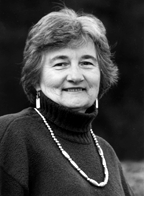 I’m constantly on the lookout for writing mentors, and here are a couple of new ones for me. Since I’m writing a children’s novel for NaNoWriMo, I’ve been rereading some favorite books from my childhood — trying to figure out what it is that makes them so good.
I’m constantly on the lookout for writing mentors, and here are a couple of new ones for me. Since I’m writing a children’s novel for NaNoWriMo, I’ve been rereading some favorite books from my childhood — trying to figure out what it is that makes them so good.
I’ve rediscovered Katherine Paterson’s Bridge to Terabithia — have you read this one? Ms. Paterson’s Christianity is subtly woven into her writing, and I love this. It fascinates me to see how she gently leads readers into a greater understanding of God without bamming them over the head. For unbelievers who pick up one of her books, her faith is fresh and startling.

Katherine Paterson was born in China to missionary parents, lived there for many years of her childhood, then also lived in Japan for four years. She’s married to a Presbyterian minister and began writing while her four children (two biological, two adopted) were young.
Many of her books for children have won awards, including two Newbery Medals: Bridge to Terabithia and Jacob Have I Loved, as well as two National Book Awards: Master Puppeteer, and The Great Gilly Hopkins.
On her website, an interviewer asked her, “In what ways has your religious conviction informed your writing?”
She answered, “I think it was Lewis who said something like: ‘The book cannot be what the writer is not.’ What you are will shape your book whether you want it to or not. I am Christian, so that conviction will pervade the book even when I make no conscious effort to teach or preach. Grace and hope will inform everything I write … The challenge for those of us who care about our faith and about a hurting world is to tell stories which will carry the words of grace and hope in their bones and sinews and not wear them like fancy dress.”
In another part of the interview, she was asked, “What would be your ‘words of wisdom’ to a person who wants to write, but is paralyzed by failure? What advice would you give people starting out?”
Here’s her response:
“When a teacher (still a dear friend) of mine in graduate school suggested I ought to be a writer, I was appalled. ‘I don’t want to add another mediocre writer to the world,’ I said. She helped me (it took years of nudging) to understand that if I wasn’t willing to risk mediocrity, I would never accomplish anything. There are simply no guarantees. It takes courage to lay your insides out for people to examine and sneer over. But that’s the only way to give what is your unique gift to the world. ”
“I have often noted that it takes the thinnest skin in the world to be a writer, and it takes the thickest to seek out publication. But both are needed—the extreme sensitivity and the hippo hide against criticism. Send your inner critic off on vacation and just write the way little children play. You can’t be judge and creator at the same time.”
Another Christian writer who has successfully written for the general markets is best-selling author, Bret Lott, whose book, Jewel, was an Oprah Book Club selection. He was the keynote speaker at this year’s Christy Awards banquet, held last July at the International Christian Retail Show in Denver.

In The Writing Life, Terry Whalin linked to his keynote address here. If you have time, it’s definitely worth a read.
Lott says in his speech, “From the time I wrote my very first short story, I struggled with how to tell a lie — that is, write fiction — while serving Christ. My struggle, then, was always with how to be a Christian and how to be a writer … one simply is a Christian, and I was trying to learn how to be a Christian who writes.”
He later talks about how Christ used parables, works of fiction, as connecting points to reach people. Lott brings to life the parable of the Good Samaritan by placing the story set in modern-day Denver.
Then he says, “Christ’s stories surprised His listeners. They were unexpected, yet the surprise of them was totally logical and clear and, finally, the kind of surprise that makes good literature good literature: the surprise turn in a story — not of plot, but of character — when the reader must come face to face with himself, and his own failures, and the dust of his own life, a dust with which we are each of us fully familiar, but which we forget about or ignore or accommodate ourselves to. The dust of our lives that we have grown accustomed to, and which it takes a piece of art created in the spirit of Christ to remind us of ourselves, and our distance from our Creator — and the chasm that is bridged by grace.”
Katherine Paterson does this so well in Bridge to Terabithia, written three decades ago and still widely read today, even in public school classrooms. As an aspiring fiction writer, I’m struggling with how to create my own bridge from a child’s heart to God — through story.
Lott ends his Christy Awards speech by imploring the writers in attendace to:
” … write books that will magnify Christ in a way that only I — you listening to me — can magnify Him. That’s all. And it is work enough — joy enough — to last each of us our own lifetime.”
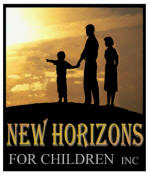



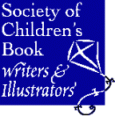





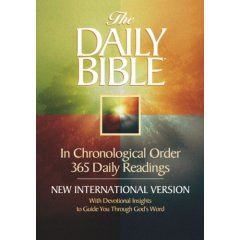
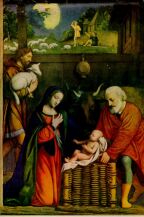

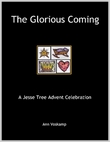

 I’m constantly on the lookout for writing mentors, and here are a couple of new ones for me. Since I’m writing a children’s novel for
I’m constantly on the lookout for writing mentors, and here are a couple of new ones for me. Since I’m writing a children’s novel for 
